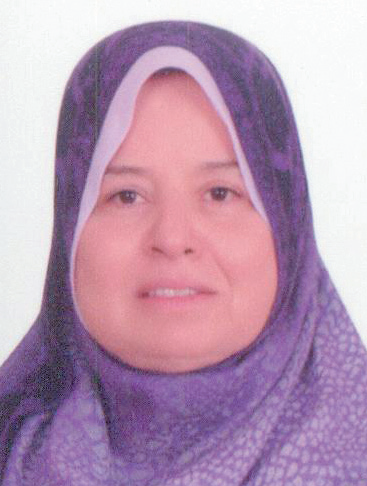Nutrition is a Corner Stone for Normal Development of Children.....What About Cancer Ones
Nutrition is a Corner Stone for Normal Development of Children.....What About Cancer Ones
Laila Sherief
Prof. of Pediatric and Pediatric Hematology and Oncology, Zagazig University.
Member of Zagazig Institutional Review Board (Irp)
Member of Zagazig Medical Research Council (Zmrc).
Adequate nutrition during cancer plays a decisive role in several clinical outcome measures, such as treatment response, quality of life, and cost of care. However, the importance of nutrition in children and young adults with malignancies is still an underestimated topic within pediatric oncology. The literature suggests that up to 46% of children and young adults with cancer experience malnutrition due to numerous tumor- and treatment-related factors. It is recognized that a diminished nutritional status may be a contributing factor for decreased immune function, delayed wound healing, and disturbed drug metabolism influencing prognosis. Children with cancer are particularly vulnerable to malnutrition, because they exhibit elevated substrate needs due to the disease and its treatment. At the same time, children have increased requirements of nutrients to attain appropriate growth and neurodevelopment.
Benefits of good nutrition
Good nutrition is especially important when a child has cancer. Both cancer and its treatments mayaffect a child’s appetite, tolerance to foods, and their body’s ability to use nutrients. Eating the right kinds of foods before, during, and after treatment can help a child feel better and stay
stronger
Eating well during cancer treatment might help the child:
• Better tolerate treatment and treatment side effects
• Stay closer to the treatment plan schedule
• Heal and recover faster
• Have less risk of infection during treatment
• Have better strength and energy
• Keep up their weight and their body’s store of nutrients
• Do better at keeping up normal growth and development
• Feel better and have a better quality of life – they are less irritable, sleep better, and work betterwith the health care team
Definition and of malnutrition in childhood cancer
Malnutrition is an unspecific term used to define an inadequate nutritional condition.The WHO recommendsthe weight-for-height index to assess the nutritional status of children and adolescents. However, it is proposed
that a loss in body weight of 5% constitutes acute malnutrition and a height-for-age value below the 5th percentile may reflect chronic undernourishment in children
Etiology and pathophysiology.
A number of pathophysiological mechanisms contribute to the development of malnutrition and growth failure in childhood cancer. The causes are multifactorial, including:
1) Complex interactions between energy and substrate metabolism;
2) Hormonal and inflammatory components;and
3) Alterations of metabolic compartments. These result in accelerated mobilization, oxidation of energy substrates,and loss of body proteins
Influence of under nutrition on Physiological Functioning
Muscle Function
↓muscle strength & endurance
↓muscle protein mass
Cardiovascular Function
Loss of cardiac muscle mass → ↓ cardiac output, bradycardia,+ hypotension is the result of severe malnutrition
Respiratory Function
In malnourished patients, dead space
ventilation increases, resulting in increased respiratory frequency
Gastrointestinal Tract
A loss of intestinal absorptive surface area diarrhea due to malabsorption exacerbates
Nutrition and Cancer Control
A- prevention of cancer:Prenatal vitamins are associated with decreases in
1-Retinoblastoma.
2-Brain tumors
3-leukemia.
4-Neuroblastoma.
Appropriate supplementation or fortification may decrease the rates of some early childhood cancers.
B-Nutrition and immunit (Immunonutrition):Modulation of the immune system and consequences of immune activation by nutrients or specific foods in concentrations above these encountered in diet.
E.g. Glutamine:
1-It enhances the activity of natural killer cells(one of the main lines of defense against tumor cells).
2-Support the muscle and gut function
3- Decrease infection andimprove the tolerance of chemotherapy.
C-Nutrition and tolerance to Chemotherapy:Good nutrition improve tolerance to chemotherapy and allow proper wound healing.
D-Nutrition and prognosis:several studies reported that malnutrition at diagnosis decrease the overall survival
How child can take in nutrients:
There are many ways to help your children get the nutrients they need. The most common are:
1-By mouth
If at all possible, the child should get needed nutrients from eating and drinking nutrient-rich foods and fluids that are part of a healthy, well-balanced diet..
Regular healthy snacks can be helpful, too.
2- (Nutritional Intervention) Enteral and parental feeding
Why to Intervene???
Maintenance of Growth& Development
•Improved Tolerance of Chemotherapy
•Amelioration or Prevention of Toxicity
•Sense of Wellbeing – QOL
•Symptom Management
• Biological modification of disease
Enteral Nutrition:“IF THE GUT WORKS USE IT”
•Preferred route of nutritional support
•Not used routinely in children with cancer
•Reduced risk of infections
•Safe and cost effective
•Preserves gut integrity and reduces
•bacterial translocation
•Enhances immune response
•Naso-gastric, gastric or post-pyloric options
Parental nutrition used in the following conditions:
•Typhilitis(neutropenic entercolitis)
•Continued malnutrition despite adequate enteral feeding
- Poor compliance of enteral feeding
- Severe mucositis (as Bone marrow transplatation)
- Not tolerating N/G feeds
- Malabsorption (GVH-acute and chronic)
Conclusion
The relevance of nutrition to pediatric cancer has a greater dimension than just that of supportive care and is relevant to most of the components of the cancer control spectrum
An aggressive nutrition program in this critical order of importance
1-Avoiding malnutrition
2-Reducing the toxicity of medical therapy while making chemotherapy and radiation more selectively toxic to the tumor cells.
3-Stimulating immune function
4-Nutrients acting as biological response modifiers assist host defense mechanisms and improve outcome in cancer therapy


 info@utopiapharma.com
info@utopiapharma.com
 Plot No. (2) Industrial Zone (A7) - formerly Zizinia - Cairo - Ismailia Road - 10th of Ramadan - Sharkia
Plot No. (2) Industrial Zone (A7) - formerly Zizinia - Cairo - Ismailia Road - 10th of Ramadan - Sharkia